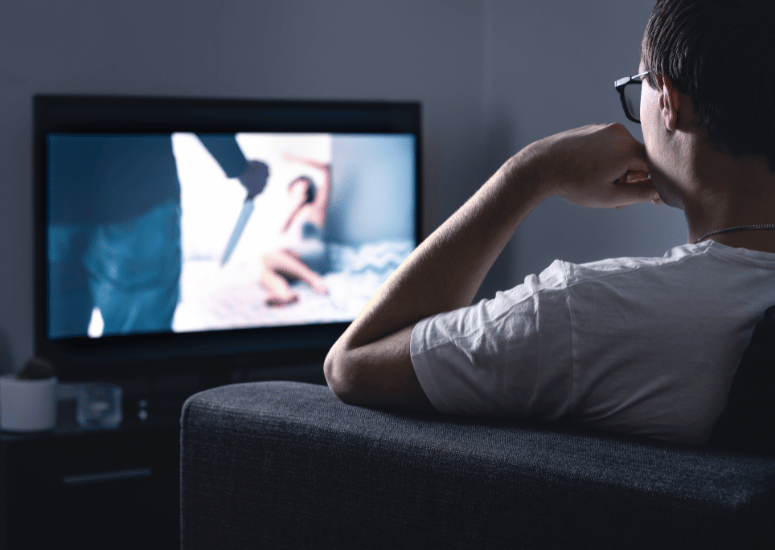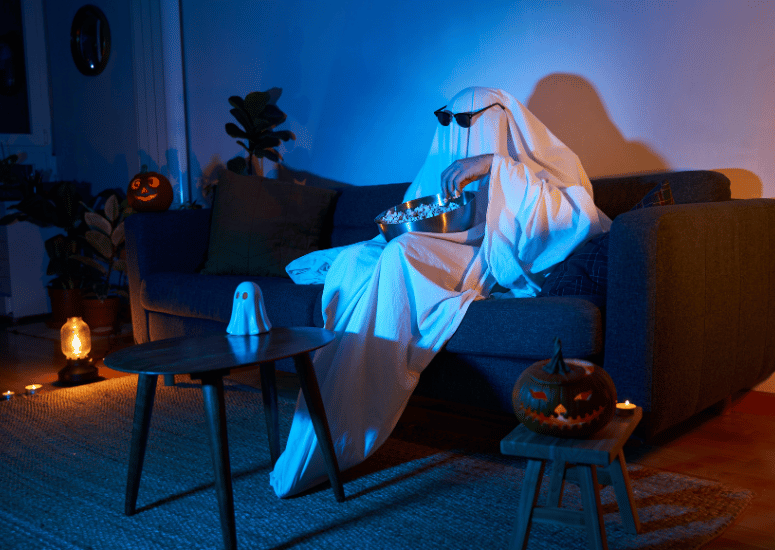TIPS: How to get over your fear of watching horror movies
Too scared to watch horror movies?
Scary films often involve themes of gore, murder, supernatural beings, and psychological fear, among others, which can be fearful, disgusting, or both for viewers. While some enjoy the thrill and suspense they offer, there are also some who can’t handle the stress when watching one.
In an interview with PhilSTAR L!fe, clinical psychologist Rea Celine Villa explained that horror movies affect the mind differently since they trigger various psychological responses, which can be looked at through behavioral learning called classical conditioning as well as the process of desensitization.
“Classical conditioning [is] where the brain learns to associate and obtain certain visual or auditory cues, like 'yung nakakatakot na music or sudden jumps na associated with danger. So even though alam natin horror films are fictional, 'yung brain natin, particularly 'yung amygdala, still reacts to these cues so na-activate 'yung tinatawag na fight-or-flight response,” she said, adding that it also triggers the release of stress hormones like cortisol and adrenaline, which heightens one’s alertness.
Vila added that fears are influenced by one’s trait anxiety and neuroticism. “People with higher levels ng mga traits na ito tend to experience stronger and longer lasting effects from horror films. Kaya increased anxiety or ‘yung intrusive thoughts na nangayari sa kanila after watching,” she explained.
Desensitization, meanwhile, is the process of how the mind gets used to thrilling scenes, which helps a viewer lessen their emotional responses and eventually get comfortable. “This is why horror fans often crave more intense scares as they get exposed to more and more [horror films],” she said.
Why do some people like watching films that give them the creeps?
Tricia Zafra, a clinical psychologist at MindCare Center, told L!fe that scary movie fans can somehow relate to the movie plot based on their cultural and social beliefs.
“We can somehow and sometimes relate to the plot or to the story because a lot of horror stories have some basis on some cultural and social beliefs. [We] can identify with the characters, and with the story,” she explained, adding that they also let people connect and socialize with others as they share a “universal feeling of fear of the unknown.”
Did you know that seeing scary movies could be beneficial, too? Villa said it could help reduce stress as these films can serve as an outlet to “safely process fear, sadness, and aggression in a controlled environment,” especially if such emotions have been bottled up for a long time.
“It may even reduce anxiety for some people kasi it offers a controlled escape from real-life stressors,” she said.

How can you get over your fear of watching scary films?
If you can't stand watching horror movies, Villa and Zafra gave some helpful tips that could help you overcome your fear.
Expose yourself to horror films in small doses
According to Villa, one technique you can try is systematic desensitization, or the gradual reduction of fear by exposing yourself to the source in small, manageable steps. This includes trying to watch one scene from a horror movie, or even just its trailer.
“Gradual exposure would help your brain adjust dun sa content without being overwhelmed right away na isang mabigat na movie ito. With that, slowly nabi-build 'yung tolerance mo tapos bumababa 'yung anxiety response mo over time,” she explained.
Remind yourself that it's just a movie
You can also try changing your mindset when it comes to horror movies, which is known as cognitive reframing.
To do this, Villa said you can condition your brain that what you’re seeing is for pure entertainment and that it only creates artificial fear.
“By repeatedly telling it to yourself, tine-train mo 'yung brain mo to separate ano ba 'yung totoong fear doon sa fictional na fear. Kaya kapag alam mo 'yung horror film is fictional, mare-reduce ‘yung fear response mo,” she explained.
Zafra echoed this, adding that viewers can calm themselves down and ensure that they are safe by keeping in mind that what they’re watching is not happening in real life.
Villa suggested that it may also be helpful to look at it in an analytical way rather than a realistic way by pointing out its technicalities, like judging the special effects used in the films.

Be aware of your vulnerabilities
It’s important to know and listen to your body before watching scary movies, Zafra emphasized.
“There are some films that issue warnings for audiences, and part of awareness is knowing whether you have certain health conditions that may be exacerbated while watching these films,” she said.
Try some relaxation techniques
Villa said it's also good to try different breathing techniques or progressive muscle relaxation before, during, and after watching horror movies.
“Kung meron kang anxiety at physical responses of horror movies, pwede kang gumamit ng iba't ibang relaxation techniques. Kasi, 'yung horror movies, nagti-trigger siya ng physiologically fight-or-flight response, so 'pag mataas 'yung response mo, you could do relaxation techniques para kumalma ka after 'yung mga reactions na ‘yun,” she told L!fe.
Another technique is progressive muscle relaxation, where you have to tense certain body parts, then slowly release and relax them from head to toe to reduce anxiety.
“By calming your physical response, you're actually teaching your brain also na ‘Oops, hindi ito real threat,’ which over time, makes watching horror movies less stressful and could maybe even make you learn to enjoy horror movies at your own pace,” Villa said.
If none of these works, Zafra suggested seeking professional help, especially if the stress and fear have been affecting your daily life.
“If these experiences get prolonged, begin to cause personal distress or personal suffering that you have not experienced before, and then begin to affect your work, your studies, or your personal relationship, it might be time to seek some help with it,” she said.


